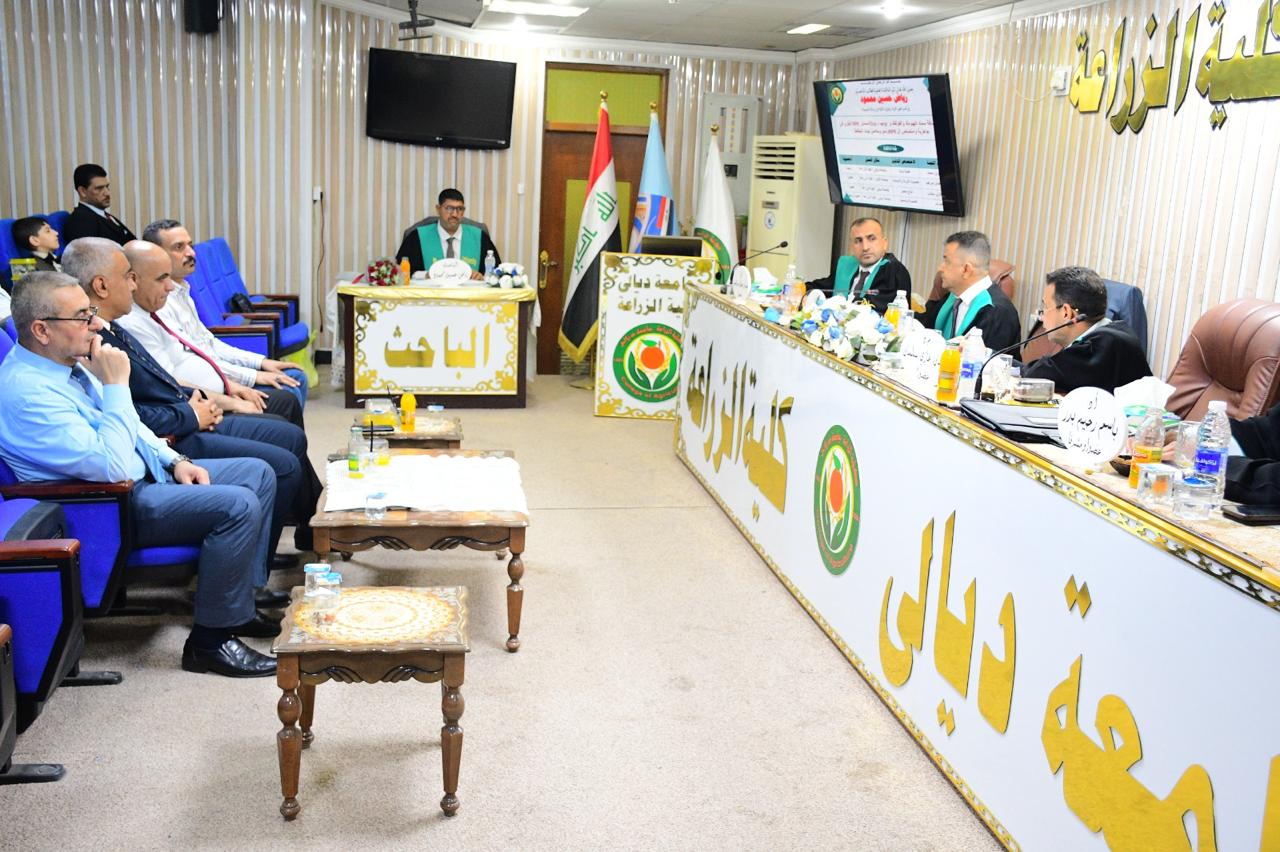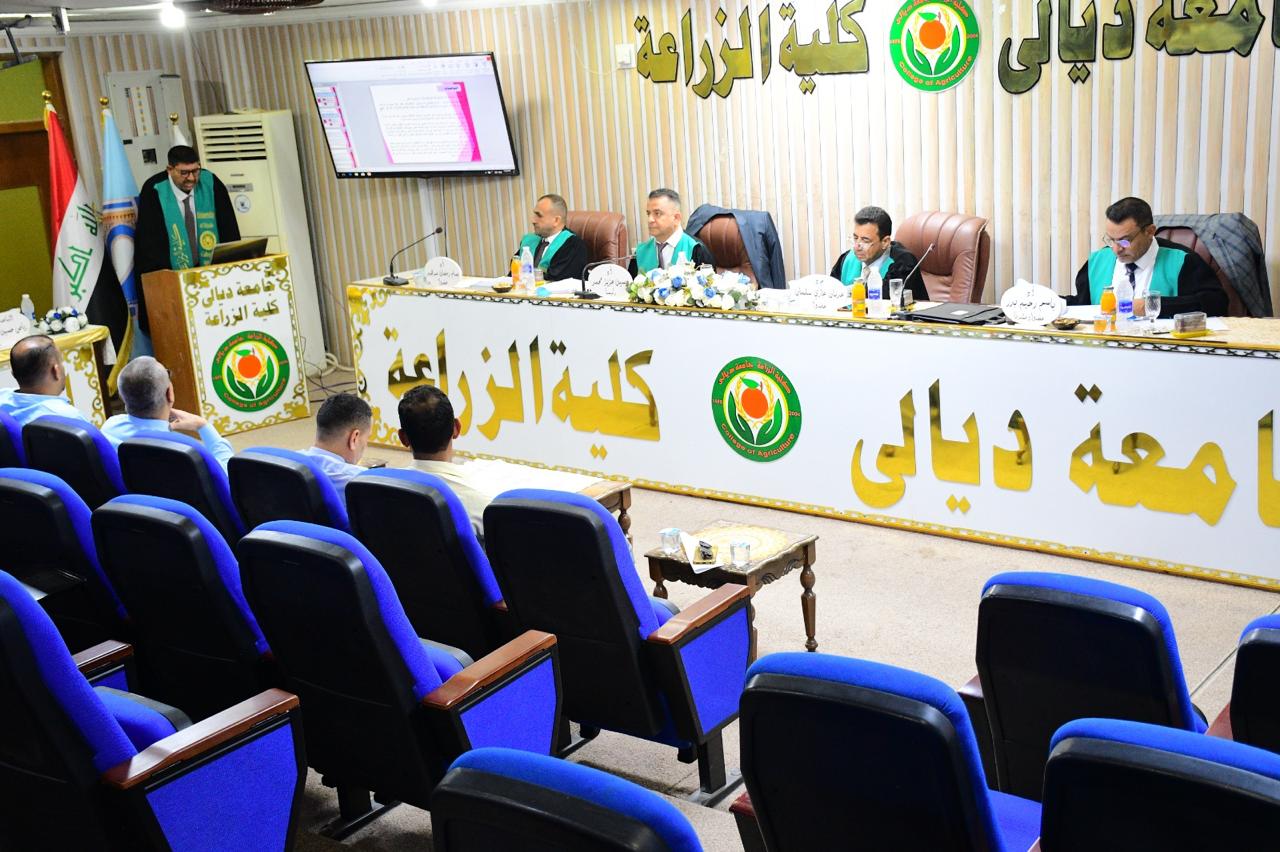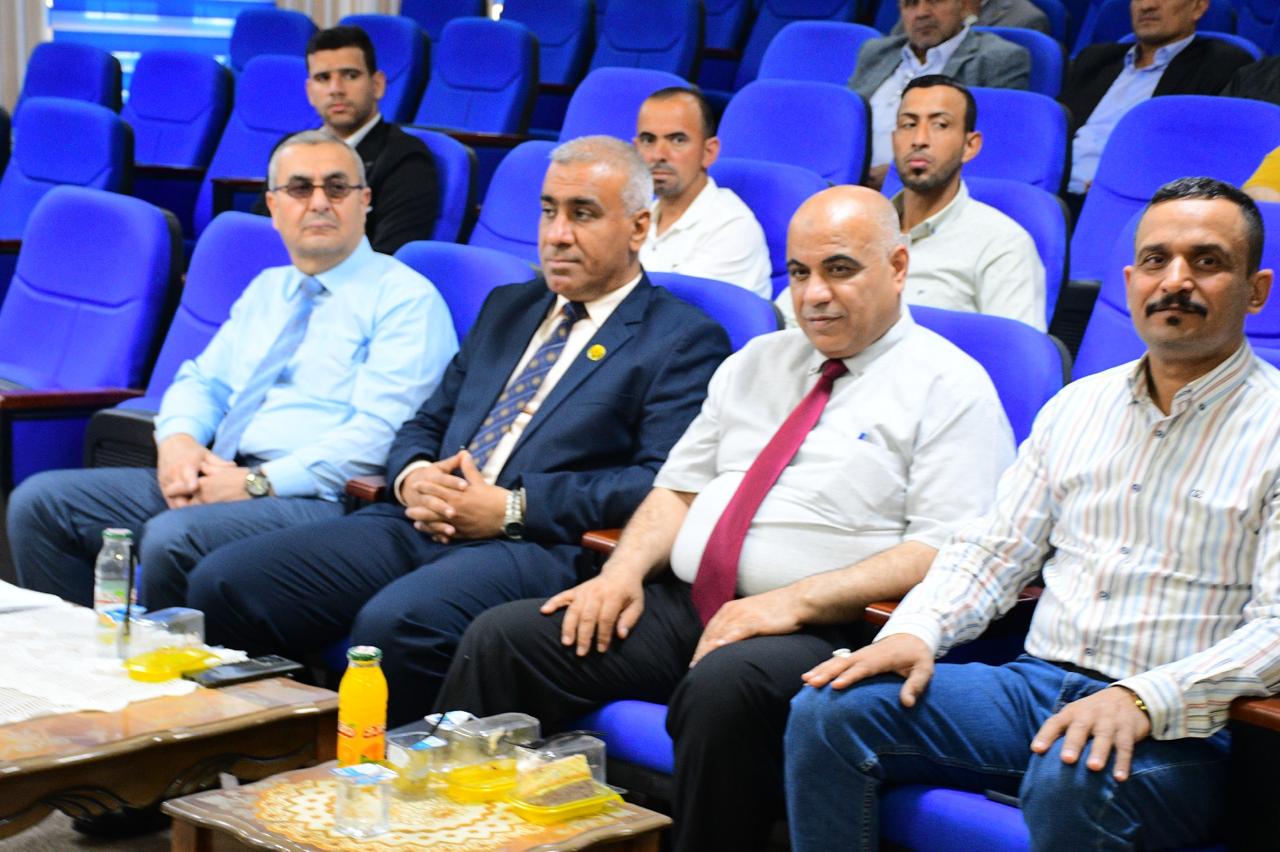A Master’s Thesis at the College of Agriculture.

The College of Agriculture at the University of Diyala has examined a Master’s thesis entitled
“The Effect of Humic and Fulvic Fertilizers and Nano NPK-Loaded Eco-Wrp on the Availability and Uptake of NPK and the Growth and Yield of Potato Plants.”
The study, submitted by the student Riyadh Hussein Mahmoud, aimed to investigate the impact of applying humic acid, fulvic acid, and Eco-Wrp loaded with nano-formulated NPK on the availability and uptake of nitrogen (N), phosphorus (P), and potassium (K), as well as on the growth and yield of potato plants. It also sought to explore the interactive effects among these three components on nutrient availability and plant performance.
The study arrived at several important conclusions, including the following:
Fertilization using the nano-composite NPK fertilizer—specifically through the application of 10 kg per hectare of Eco-Wrp combined with 2 g/m² of nano NPK, and another treatment with 10 kg/ha Eco-Wrp plus 4 g/m² nano NPK—resulted in the provision of optimal levels of nitrogen, phosphorus, and potassium in the soil. These nutrients are essential during the various growth stages of potato plants. The treatments led to increased concentrations of these elements in the soil, plant leaves, and tubers.
Moreover, the application of humic acid at a rate of 5 grams per plant significantly enhanced the availability of N, P, and K throughout the plant’s developmental stages. This increase in nutrient availability was reflected in higher concentrations within the plant tissues (leaves and tubers), which in turn contributed to greater vegetative growth, improved overall yield, and long-term enhancement of the soil’s physical and chemical properties.
Furthermore, the interaction between the nano-composite NPK fertilizer (Eco-Wrp loaded with nano NPK), humic acid, and fulvic acid produced significant effects across most of the studied growth and yield parameters of potato plants. It also influenced several soil properties, such as organic matter content, electrical conductivity, and soil pH—factors that collectively improve soil fertility and plant productivity over the long term.
The study recommends the following:
-
Application of nano NPK composite fertilizer at a rate of 10 kg/ha along with 2 g/m² nano NPK via Eco-Wrp to maintain the availability of N, P, and K in the soil;
-
Application of humic acid at 5 g per plant and fulvic acid at 2 g per plant due to their effectiveness in enhancing fertilizer use efficiency, nutrient uptake, productivity, and improving soil properties;
-
Promotion of the use of nano-formulated NPK fertilizers in combination with organic fertilizers while reducing dependence on conventional compound fertilizers. This should be supported by further research into the application of humic and fulvic acids—or humic substances in general—as they play a crucial role in sustainable agriculture. These substances have the potential to reduce the reliance on conventional chemical fertilizers, enhance long-term soil fertility, and ultimately lower agricultural input costs.







